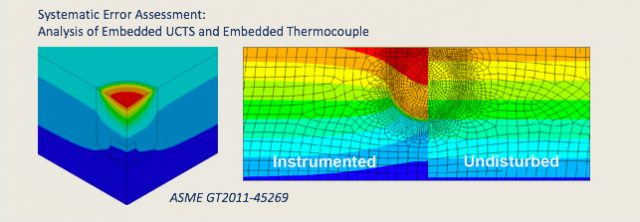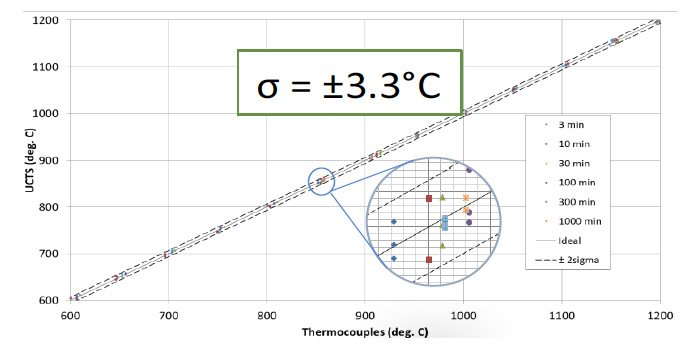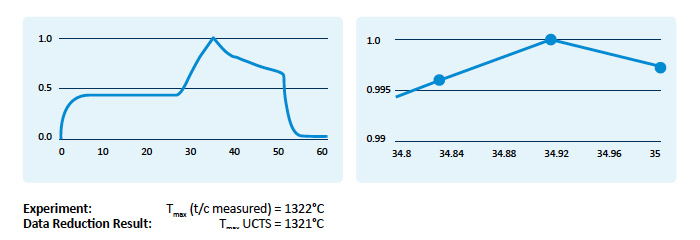Accuracy
With good engineering practices, Uniform Crystal Temperature Sensor technology is capable of high accuracy max metal temperature measurements in real engine conditions.

With good engineering practices, Uniform Crystal Temperature Sensor technology is capable of high accuracy max metal temperature measurements in real engine conditions.

UCTS technology presents an effective and elegant solution to the challenging problem of metal temperature measurement in a hostile turbine environment.
LGTL Global has co-authored peer- reviewed publications that discuss accuracy and provide practicing engineers with guidance for optimizing UCTS application. Three publications that we highly recommend to our users cover measurement in steady state, accuracy in transient conditions and influence of manufacturing factors. These are:
T = ( Ti + Σ δsyst.) ± δrandom

Comparison with S-type Platinum Thermocouple
Normalized Temperature (T / Tmax) vs. Time (minutes)
